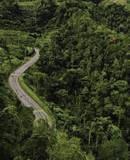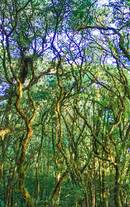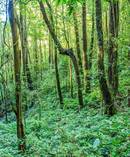Noticias
REDD+ nesting: reducing emissions, forest monitoring and benefit sharing at multiple scales
05/12/2018
05/12/2018

Many countries around the world are working to reduce emission from deforestation and forest degradation, sustainably manage, conserve and enhance forest carbon stocks (REDD+). Regional South-South exchanges have emerged to share knowledge and advance together the battle against climate change. Two recent Regional South-South Exchanges of the UN-REDD Programme addressed important issues for REDD+ countries in Asia-Pacific and Africa. The issue of ‘nesting’ has consistently attracted much attention from country decision makers at those events: the question being how actions at smaller scales can best be catalysed to contribute to larger-scale jurisdictional performance, whether at national or subnational scales.
Subnational or...

To reduce fire risk and stop enormous amount of carbon from being emitted from the soil into the atmosphere, Indonesia is rewetting over two million hectares of dried out peatlands, while scaling up information sharing on these the carbon-rich wetlands globally.
Globally, the vital importance of peatlands has historically been poorly understood, and they are frequently drained for plantations, farming and forestry. In an effort to reduce the fire risk, the government has stepped up law enforcement to make sure peatland regulations – including a nationwide ban prohibiting new peatland drainage – are enforced.
While knowledge of tropical peatlands has hugely increased...
The UN-REDD Programme celebrates 10 years, and looks to future at 2nd Executive Board Meeting
27/10/2018
27/10/2018

The UN-REDD Programme is celebrating 10 years of successfully working with 64 countries to achieve climate and forest goals. The Programme will continue to play a key role at the global level to strengthen countries capacity to better protect, manage and monitor their forests, to advance forest-related investments in partner countries and to support strategies and market access for deforestation-free agriculture commodities as a measure to halt deforestation and ultimately deliver emission reductions.
The 10-year anniversary represents a positive momentum to not only evaluate the Programme’s past successes but to plan future work. To do so, the UN-REDD Programme Executive Board...

The Ministry of Tourism and Environment of the Republic of the Congo (MTE) and the Food and Agriculture Organization of the United Nations (FAO) have launched a technical assistance project to strengthen the country’s readiness efforts towards the Green Climate Fund (GCF). Hosted in Brazzaville, the launching event gathered more than forty participants representing various ministries, civil society, technical and financial partners, indigenous peoples and the private sector. The meeting presented an outline of the technical assistance project and enabled discussions on the various activities and feasibility studies that will be launched.
In his opening speech, Mr Roch Mpassi Moumpassi, the...

Fulfilling global environmental commitments and goals requires accurate information due to the number of challenges that countries face. A clear understanding of these challenges facilitates the creation and implementation of accurate strategies, involving all stakeholders, and enables the monitoring and implementation of policies and measures to reduce their greenhouse gas emissions and promote countries’ sustainable development goals.
National Communications and more recently Biennial Update Reports (BUR) are the instruments through which countries are reporting their National Greenhouse Gas (GHG) Inventories to the United Nations Framework Convention on Climate Change (UNFCCC). Since 2014, 44 developing countries have submitted their first BUR to the UNFCCC,...

